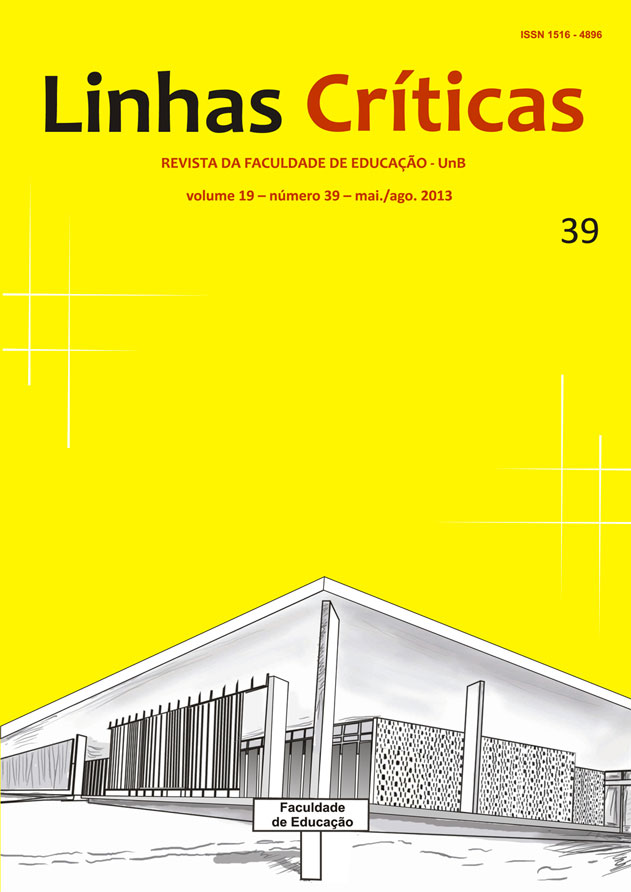Recognition and moral progress: contributions from Honneth’s concept of modernity to the conception of human development
DOI:
https://doi.org/10.26512/lc.v19i39.4127Keywords:
Moral progress, Recognition, Modernity, Paradoxical contradictions, DevelopmentAbstract
This paper addresses the conception of moral progress in Honneth’s theory of recognition in order to derive from it contributions towards the conception of human development. In order to meet such goal, efforts are made so as to show in what sense there has been, along modernity, an evolution in each sphere of recognition and how such an evolution can be understood as moral progress. This step thus helps make explicit the principles that support the notion of moral progress to finally establish, according to Honneth’s theory of recognition, some questions and indicators for human development from the contrast between the concepts of moral progress and paradoxical contradictions.
Downloads
References
BOLTANSKI, Luc; CHIAPELLO, Eve. Le nouvel esprit du capitalisme. Paris: Gallimard, 1999.
DALBOSCO, Cláudio Almir. Pragmatismo, teoria crítica e educação. Campinas: Autores Associados, 2010.
HABERMAS, Jürgen. Para a reconstrução do materialismo histórico. 2ed. São Paulo: Brasilense, 1990.
HONNETH, Axel. Luta por reconhecimento: a gramática moral dos conflitos sociais. São Paulo: Editora 34, 2003.
HONNETH, Axel. Redistribution as recognition: a response to Nancy Fraser. In: FRASER, Nancy; HONNETH, Axel. Redistribution or Recognition. Londres/Nova York: Verso, 2003b. p. 110-197.
HONNETH, Axel. The point of recognition: a rejoinder to the rejoinder. In: FRASER, Nancy; HONNETH, Axel. Redistribution or Recognition. Londres/NY: Verso, 2003c. p. 237-267.
HONNETH, Axel. Une pathologie sociale de la raison. Sur l Ìhéritage intellectuel de la théorie critique. In: La societé du mépris. Paris: La découverte, 2006a (p.101-130).
HONNETH, Axel. La reconnaissance comme ideologie. In: La societé du mépris. Paris: La découverte, 2006b (p.245-274).
HONNETH, Axel.; HARTMANN, Martin. Les paradoxes du capitalisme: un programme de recherche. In: La societé du mépris. Paris: La découverte, 2006c (p.275-303).
HONNETH, Axel.; HARTMANN, Martin. Capitalisme et réalisation de soi: les paradoxes de l’individuation In: La societé du mépris. Paris: La découverte, 2006d (p.305-323).
HONNETH, Axel.; HARTMANN, Martin. Reificación: un estudio en la teoria del reconocimiento. Buenos Aires: Katz, 2007.
HONNETH, Axel.; HARTMANN, Martin. Das Recht der Freiheit, Berlin: Suhrkamp Verlag, 2011.
MUHL, Eldon Henrique. Cultura empresarial e formação docente. In: CENCI, Angelo Vitório; FAVERO, Altair Alberto; TROMBETTA, Gerson Luis. Universidade, filosofia e cultura. Passo Fundo: UPF editora, 2009.
NOBRE, Marcos. Introdução. In: HONNETH, Axel. Luta por reconhecimento: a gramática moral dos conflitos sociais. São Paulo: Editora 34, 2003.
SGRÓ, Margarita. Educação pós-filosofia da história: racionalidade e emancipação. São Paulo: Cortez, 2007.
SIMMEL, Georg. Les grandes villes et la vie de l Ìesprit. Paris: L ÌHerne, 2007.
TAYLOR, Charles. Ética de la autenticidad. Barcelona: Paidós, 1994.
Downloads
Published
How to Cite
Issue
Section
License
Copyright (c) 2016 Linhas Críticas

This work is licensed under a Creative Commons Attribution 4.0 International License.
Authors who publish in this journal agree to the following terms:
-Authors maintains the copyright and grants the journal the right of first publication, the work being simultaneously licensed under the Creative Commons Attribution License which allows the sharing of the work with recognition of the authorship of the work and initial publication in this journal.
- Authors are authorized to enter into additional contracts separately, for non-exclusive distribution of the version of the work published in this journal (eg publish in institutional repository or as a book chapter), with acknowledgment of authorship and initial publication in this journal.
-Authorers are allowed and encouraged to publish and distribute their work online (eg in institutional repositories or on their personal page) at any point before or during the editorial process, as this can generate productive changes as well as increase the impact and the citation of published work (See The Effect of Free Access).



